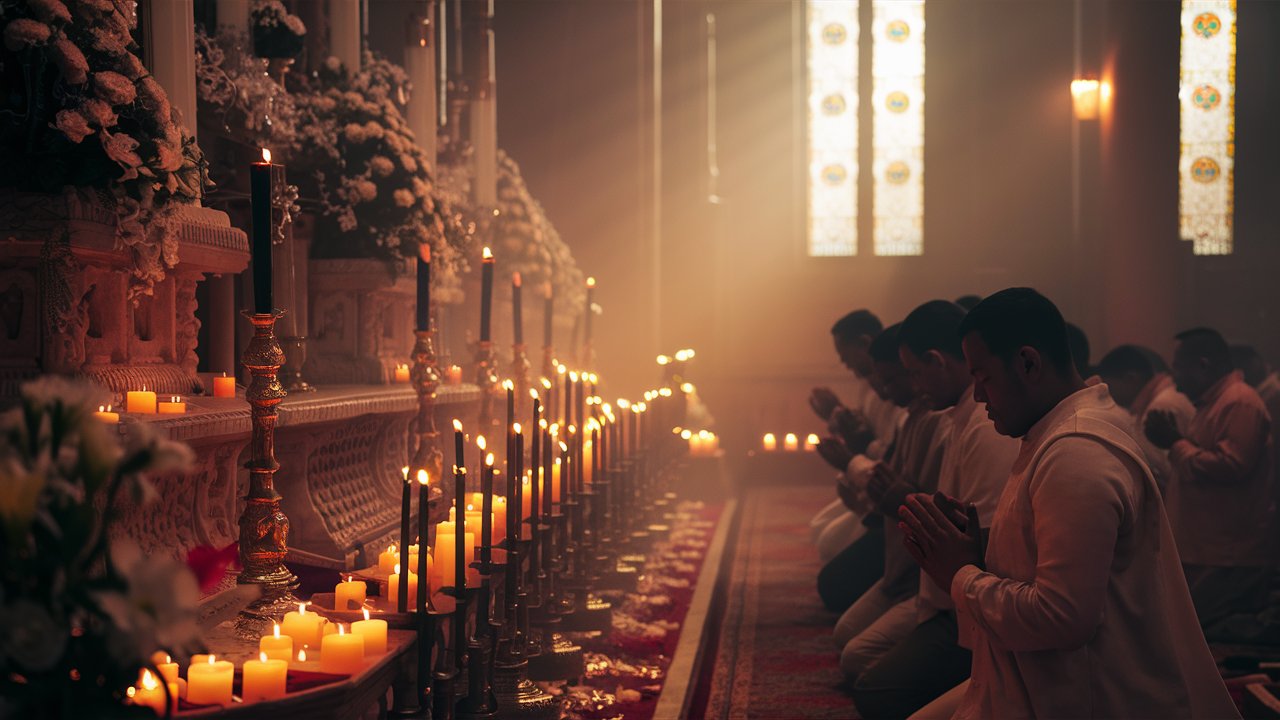
Latria is a term that might sound unfamiliar, but it holds significant meaning in religious contexts. Latria refers to the highest form of worship, reserved exclusively for God in Christian theology. This term distinguishes the worship given to God from the veneration offered to saints and angels, known as dulia and hyperdulia. Understanding latria helps clarify the different levels of reverence within the Christian faith. Whether you're a theology student, a curious mind, or someone exploring religious studies, knowing these distinctions can deepen your appreciation of worship practices. Let's dive into 20 intriguing facts about latria that will broaden your understanding of this profound concept.
What is Latria?
Latria is a term that might not be familiar to everyone, but it holds significant meaning in religious contexts. Let's explore some fascinating facts about Latria.
-
Latria is a term derived from the Greek word "latreia," which means worship or service. It specifically refers to the worship given to God alone.
-
In Christian theology, Latria is the highest form of worship, reserved exclusively for God. This distinguishes it from other forms of veneration.
-
Dulia and Hyperdulia are two other forms of veneration in Christian theology. Dulia is the veneration given to saints, while Hyperdulia is a special veneration given to the Virgin Mary. Neither reaches the level of Latria.
Historical Context of Latria
Understanding the historical context of Latria helps us appreciate its significance in religious practices.
-
The concept of Latria dates back to early Christianity. It was used to differentiate the worship of God from the veneration of saints and angels.
-
Thomas Aquinas, a medieval theologian, played a crucial role in defining and explaining Latria. He emphasized that Latria is due to God alone because of His supreme nature.
-
In the Council of Trent (1545-1563), the Catholic Church reaffirmed the distinction between Latria, Dulia, and Hyperdulia, solidifying their theological importance.
Latria in Religious Practices
Latria manifests in various religious practices and rituals, emphasizing the worship of God.
-
Eucharistic Adoration is a practice in the Catholic Church where the consecrated Host is adored. This act is considered an expression of Latria.
-
Prayer and Hymns directed to God are forms of Latria. These acts of worship acknowledge God's supreme authority and divinity.
-
Sacraments like the Eucharist and Baptism are considered acts of Latria because they are direct interactions with God's grace.
Latria in Art and Literature
Latria has also influenced art and literature, reflecting its deep-rooted significance in culture.
-
Religious Art often depicts scenes of Latria, such as the adoration of the Magi or the worship of Christ in the Last Supper.
-
Literature from the medieval period frequently explores themes of Latria, highlighting the importance of worship in daily life and spiritual practice.
-
Music composed for religious services, like Gregorian chants, often aims to elevate the soul towards Latria, creating a sense of divine worship.
Modern Perspectives on Latria
Even in contemporary times, Latria continues to hold a place in religious thought and practice.
-
Modern Theologians still discuss and write about Latria, exploring its relevance in today's spiritual landscape.
-
Interfaith Dialogues sometimes touch upon the concept of Latria, comparing it with similar practices in other religions.
-
Religious Education programs often include teachings on Latria, ensuring that new generations understand its significance.
Latria and Personal Spirituality
Latria isn't just a theological concept; it also plays a role in personal spirituality and devotion.
-
Personal Prayer can be an act of Latria when directed towards God with the intention of worship and adoration.
-
Meditation on the divine attributes of God can also be considered a form of Latria, as it involves deep reverence and worship.
-
Community Worship services, where believers gather to worship God, are collective expressions of Latria.
Challenges and Misunderstandings
Despite its importance, Latria is sometimes misunderstood or misrepresented.
-
Some people confuse Latria with other forms of veneration, not realizing the unique and exclusive nature of this worship.
-
Misinterpretations of Latria can lead to theological debates and discussions, highlighting the need for clear teaching and understanding.
Latria remains a profound and essential aspect of religious worship, deeply embedded in theology, history, and personal spirituality.
Final Thoughts on Latria
Latria, a term steeped in religious tradition, signifies the highest form of worship reserved for God alone. This concept, rooted in ancient practices, highlights the profound reverence and devotion that believers express. Understanding latria offers a glimpse into the depth of faith and the ways people connect with the divine. It underscores the importance of distinguishing between different forms of veneration, ensuring that worship remains pure and directed towards the ultimate deity. By exploring these 20 facts, we've uncovered the rich history and significance behind this sacred term. Whether you're a scholar, a believer, or simply curious, these insights into latria provide a deeper appreciation for the nuances of religious worship. Embracing this knowledge enriches our understanding of faith and the diverse ways humanity seeks to honor the divine.
Was this page helpful?
Our commitment to delivering trustworthy and engaging content is at the heart of what we do. Each fact on our site is contributed by real users like you, bringing a wealth of diverse insights and information. To ensure the highest standards of accuracy and reliability, our dedicated editors meticulously review each submission. This process guarantees that the facts we share are not only fascinating but also credible. Trust in our commitment to quality and authenticity as you explore and learn with us.


